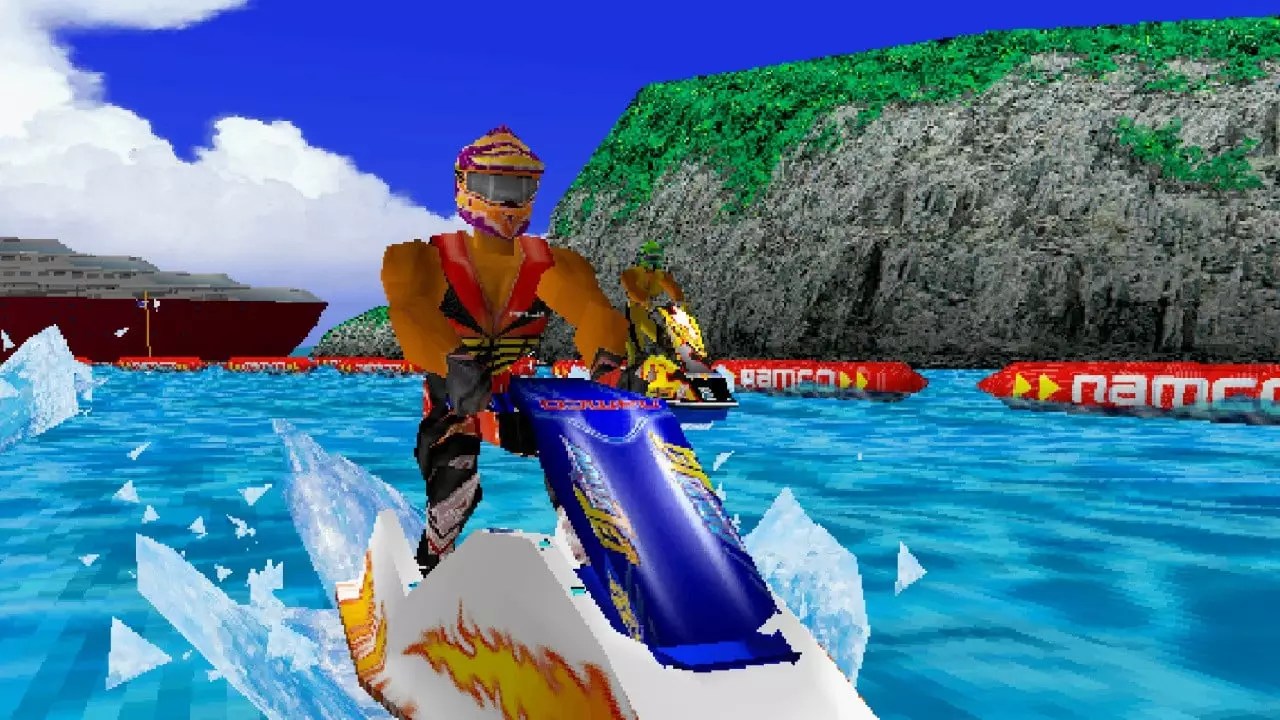In an era where retro gaming is celebrated and preserved, it’s both fascinating and frustrating to see classic titles from the arcades make their way onto modern consoles. The recent port of Aqua Jet to Switch 2 exemplifies this phenomenon. Originally birthed in the nostalgic wave of 1990s water-themed racing games, Aqua Jet epitomized a specific period’s aesthetic and gameplay sensibilities. While the game’s visual appeal still holds a certain charm—bright, lively colors and a sense of exhilarating speed—the experience is marred by limited content and somewhat superficial features. Ports like these serve as nostalgic capsules and testaments to an era, but they often fall short in delivering sustained entertainment unless driven by a strong passion for the franchise or genre.
Technical Fidelity Versus Content Depth
Hamster Corporation’s efforts to recreate Aqua Jet on Switch 2 reflect a respectful curation of nostalgia, with subtle modern tweaks such as HD rumble, gyroscopic controls, and customizable display options. These features enhance the tactile feel and immersion, offering a noticeable upgrade over the original cabinets. However, these are superficial enhancements—icing on a cake that is thin and underbaked. The game itself offers only two playable courses, which diminishes the appeal for players seeking variety or challenge. The inclusion of modes like High Score, Time Attack, and Caravan does introduce replayability, but within a narrow scope. Rewinding gameplay provides some comfort for casual attempts, but it also exposes the simplicity of the core gameplay loop. Despite technically impressive visuals and intuitive controls, Aqua Jet’s lack of depth—more courses, more modes—undermines its potential as a lasting entertainment source.
Visuals and Performance: A Double-Edged Sword
One cannot overlook the game’s visual presentation, which remains vibrant and engaging. Whether docked or handheld, the colorful environment and sense of speed still captivate. Big jumps and underwater glimpses, along with the whimsical addition of whales and helicopters, lend a playful atmosphere. These design elements evoke nostalgia while still providing moments of awe. Nevertheless, the limited number of tracks makes these visual treats repetitive quickly. The unlockable mirror variants and silly penguin mode inject some fun but ultimately feel like superficial gimmicks rather than meaningful gameplay additions. The core experience is reminiscent of late 90s arcade racing; visually appealing but quantitatively sparse. Repetition and limited content become increasingly noticeable after a few runs, making the game’s longevity questionable.
The Dilemma of Nostalgic Porting
Aqua Jet’s transition from arcade cabinets to Switch 2 speaks to the broader trend of nostalgia-driven gaming. While such ports are commendable for preserving gaming history, they also reveal inherent limitations. The restriction to only two main courses, even with cheat-enabled variants, underscores how much modern players crave content. The online leaderboards attempt to foster a competitive community, but one is left wondering how often players will return without multiplayer modes or expanded courses. This pattern—where a game’s core appeal is its nostalgic value rather than its gameplay—raises questions about the longevity and true relevance of such ports. Is it enough to simply preserve a game’s appearance, or must there be substantive updates and content to truly justify a re-release?
Final Thoughts: A Visit with Limitations
In many ways, Aqua Jet on Switch 2 is a valiant homage to a bygone era, executed with care and technical finesse. Yet, it ultimately feels like a curated museum piece rather than a vital, thriving game. For dedicated fans of arcade water racing or nostalgic collectors, it provides moments of joy and a convenient way to relive childhood memories. But for the average player seeking engaging gameplay, the limited tracks, minimal modes, and repetitive structure will quickly dampen enthusiasm. Hamster’s porting effort exemplifies the challenge of balancing authenticity with modern expectations—something that Aqua Jet manages only superficially. As an artifact of gaming history, it’s charming; as an engaging title, it falls short of delivering lasting appeal.


Leave a Reply